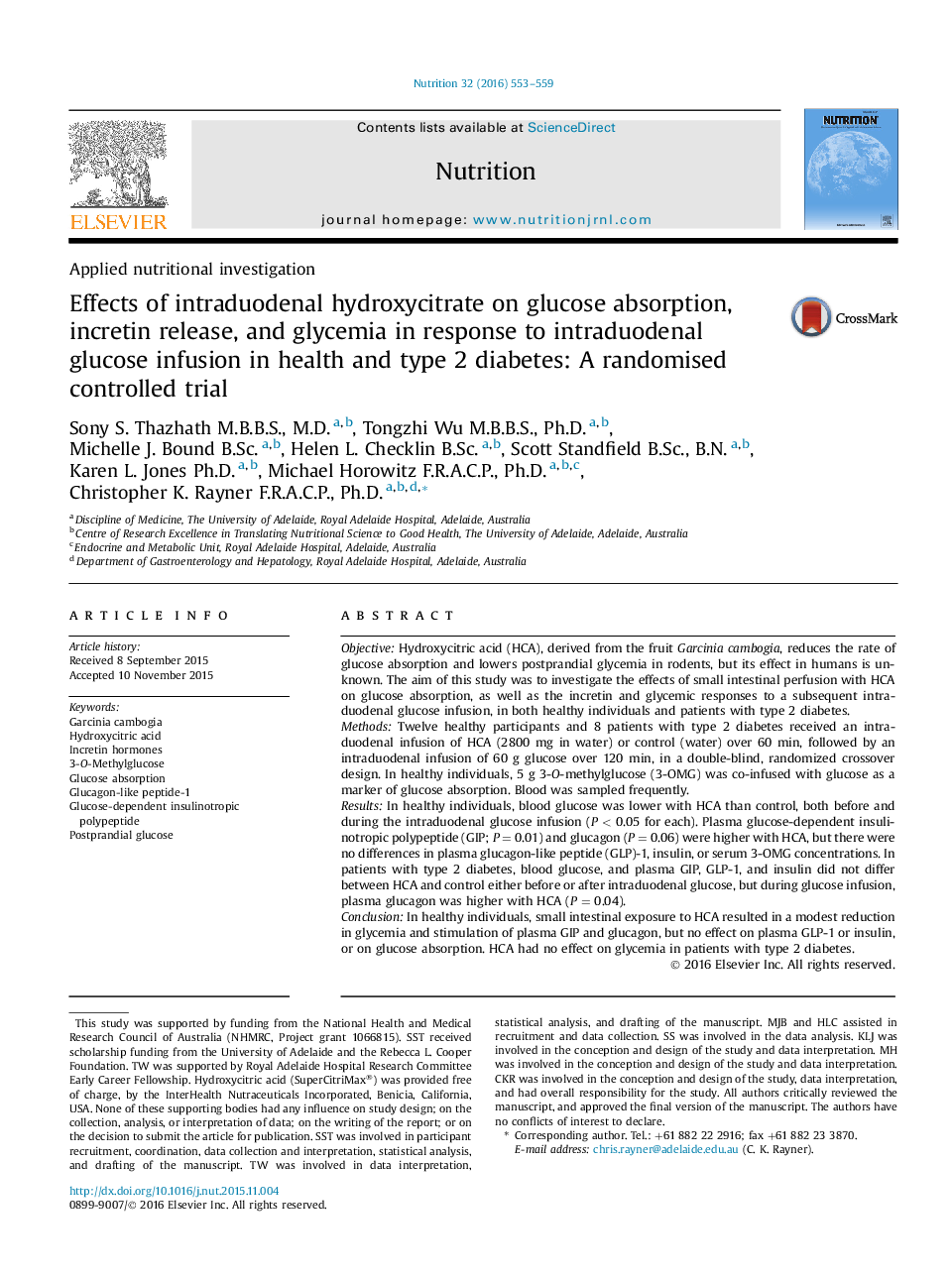| کد مقاله | کد نشریه | سال انتشار | مقاله انگلیسی | نسخه تمام متن |
|---|---|---|---|---|
| 3276250 | 1208541 | 2016 | 7 صفحه PDF | دانلود رایگان |

• In healthy humans, acute small intestinal exposure to hydroxycitric acid (HCA; 2800 mg) results in a modest reduction of blood glucose during fasting and after an intraduodenal glucose load, by uncertain mechanisms.
• In patients with type 2 diabetes, small intestinal infusion of HCA does not have any effect on blood glucose or plasma insulin, glucose-dependent insulinotropic polypeptide (GIP) or glucagon-like peptide-1 during fasting or in response to intraduodenal glucose infusion.
• Although HCA is marketed as a weight loss agent, in healthy adults it was found acutely to augment glucose-induced secretion of GIP, which has been regarded as a “fat-promoting” hormone.
ObjectiveHydroxycitric acid (HCA), derived from the fruit Garcinia cambogia, reduces the rate of glucose absorption and lowers postprandial glycemia in rodents, but its effect in humans is unknown. The aim of this study was to investigate the effects of small intestinal perfusion with HCA on glucose absorption, as well as the incretin and glycemic responses to a subsequent intraduodenal glucose infusion, in both healthy individuals and patients with type 2 diabetes.MethodsTwelve healthy participants and 8 patients with type 2 diabetes received an intraduodenal infusion of HCA (2800 mg in water) or control (water) over 60 min, followed by an intraduodenal infusion of 60 g glucose over 120 min, in a double-blind, randomized crossover design. In healthy individuals, 5 g 3-O-methylglucose (3-OMG) was co-infused with glucose as a marker of glucose absorption. Blood was sampled frequently.ResultsIn healthy individuals, blood glucose was lower with HCA than control, both before and during the intraduodenal glucose infusion (P < 0.05 for each). Plasma glucose-dependent insulinotropic polypeptide (GIP; P = 0.01) and glucagon (P = 0.06) were higher with HCA, but there were no differences in plasma glucagon-like peptide (GLP)-1, insulin, or serum 3-OMG concentrations. In patients with type 2 diabetes, blood glucose, and plasma GIP, GLP-1, and insulin did not differ between HCA and control either before or after intraduodenal glucose, but during glucose infusion, plasma glucagon was higher with HCA (P = 0.04).ConclusionIn healthy individuals, small intestinal exposure to HCA resulted in a modest reduction in glycemia and stimulation of plasma GIP and glucagon, but no effect on plasma GLP-1 or insulin, or on glucose absorption. HCA had no effect on glycemia in patients with type 2 diabetes.
Journal: Nutrition - Volume 32, Issue 5, May 2016, Pages 553–559